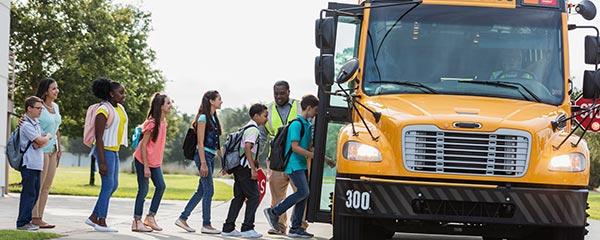Grades are an important factor in U.S. parents' perceptions of their child’s academic performance, as 64% say grades are one of the most important ways to know whether their child is achieving. Most parents of all racial and ethnic backgrounds say their child brings home traditionally good grades (mostly B’s or better), including Black parents (73%), Hispanic parents (75%) and White parents (80%). While grades factor into U.S. parents' perceptions of their child’s academic performance, they may not tell the whole story.
National assessment data indicate the number of students at or above grade level is closer to half or less, and lower among students of color. Data from a recent Gallup-Learning Heroes study suggests that depending only on report cards might sideline parents, as those who recognize their child is below grade level are more likely to take action to support their child’s academic skills. As the gap between perceptions and some measures of performance is widest among Black and Hispanic parents, it is especially urgent that parents of color receive all of the information they need to decide if and when to advocate for additional educational support.
If Child Were to Receive Poor Test Scores, Black Parents More Likely to Show Concern and Take Action
The good news is that if parents knew, they say they would act. Survey respondents read a vignette asking them to imagine that they had learned that their child received a B in math and had scored below grade level on two standardized math tests, including a year-end test and a benchmark test (such as MAP or DIBELS). In response, nearly three-quarters of Black parents (72%) reported that they would be extremely or very concerned about these results, compared with just over half of Hispanic (56%) and White (52%) parents.
When presented with potential actions they might take in response to the B in math and two low math test scores, parents of all racial and ethnic backgrounds reported a high likelihood of taking action. However, parents of color -- particularly Black parents -- are especially likely to say they would “definitely” take action, compared with the national average of parents. Black parents (57%) were roughly 1.5 times as likely as the national average (38%) to say they would access free online learning resources to support their child, and twice as likely to say they would get an in-school tutor (50% vs. 25%, respectively).
Hispanic parents also report a greater likelihood of taking action in some areas compared with parents of all racial and ethnic backgrounds, particularly accessing free online resources (48% vs. 38%) and getting an in-school (33% vs. 25%) or private (24% vs. 17%) tutor.
The Perception-Performance Gap May Be Wider for Black and Hispanic Families
The lack of a complete picture could be a greater concern for Black and Hispanic families, who experience a larger-than-average perception-performance gap between their perceptions of grade-level work and results from NAEP achievement tests. While 89% of parents of all racial and ethnic backgrounds report their child is performing at or above grade level in math, less than half of White fourth graders (48%) and less than one-quarter of Black (15%) and Hispanic (22%) fourth graders score as proficient or better in math. This is according to students’ scores on The National Assessment of Educational Progress (NAEP), also known as “The Nation’s Report Card.” The portion of students achieving at least “NAEP Basic” or above, a lower bar indicating partial mastery, is 86% of White fourth graders, 55% of Black fourth graders and 64% of Hispanic fourth graders. A similar pattern holds for fourth grade reading scores.
Incorporating data from standardized tests -- including year-end tests or periodic benchmark exams -- into their evaluation of their child's performance could help parents fully understand their child’s achievement.
It is important to note that standardized education tests in the U.S. have faced criticism for their racial and cultural biases, which may exaggerate the perceived learning gap and limit performance-based opportunities for students of color. Multiple research studies find that tests often disproportionately disadvantage minority students, particularly Black and Hispanic students.
Bottom Line
Black parents -- and, in some areas, Hispanic parents -- are among the most likely to be concerned and say they would “definitely” take action if presented with information that their child was not performing at grade level. With national test data suggesting that between one-quarter to one-half of Black and Hispanic students are not performing at grade level, it is especially important that their parents have the information they need to evaluate when to intervene to support their child academically. Yet, almost nine in 10 Black and Hispanic parents say their child is performing at or above grade level in reading and math, similar to the national average. When parents can consider information beyond report card grades, including data from various standardized tests, they have a more complete picture of their child’s academic progress.
While A’s and B’s on report cards may lead all parents to miss warning signs that performance on a standardized test might provide, this perception-performance gap is even more significant for Black and Hispanic families. A holistic review of educational progress can help parents better advocate for the academic resources their child needs. See the full Gallup-Learning Heroes report for more insight into how parents perceive and support their child’s academic performance.
To stay up to date with the latest Gallup News insights and updates, follow us on X.
Learn more about how The Gallup Panel works.




